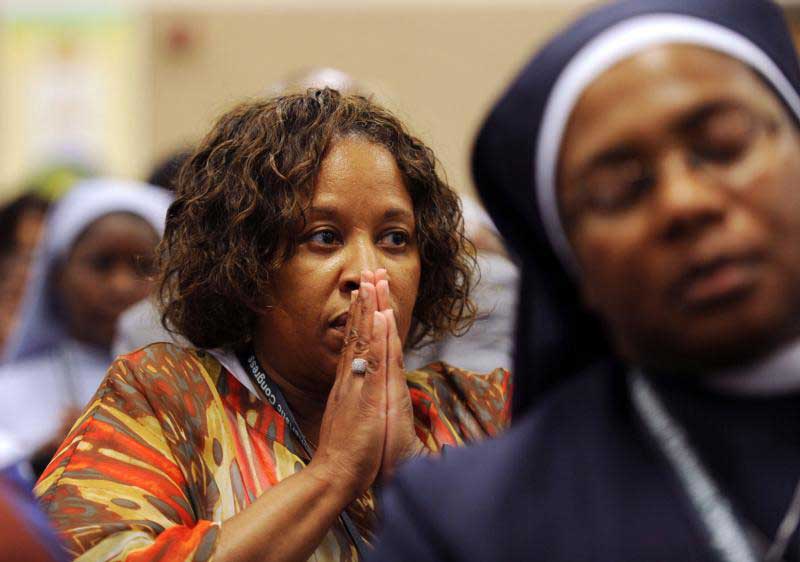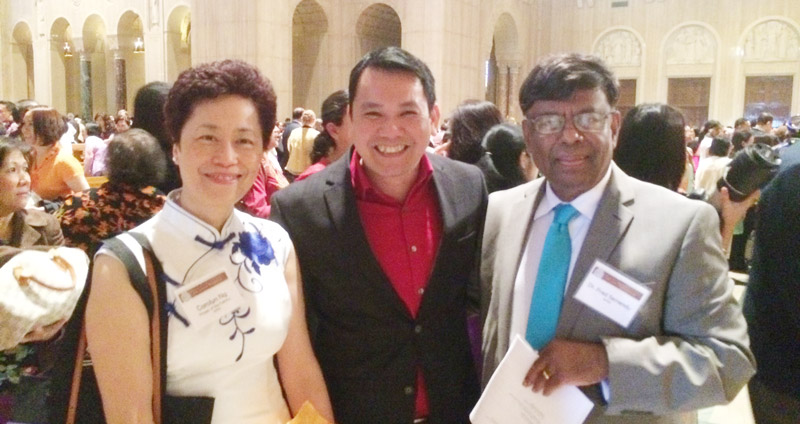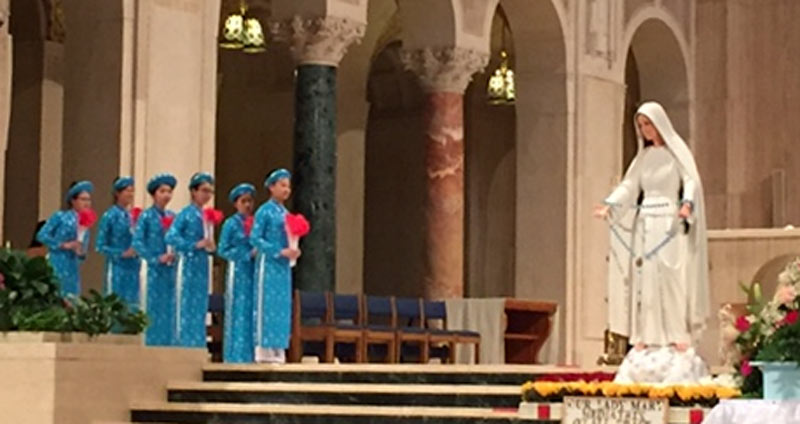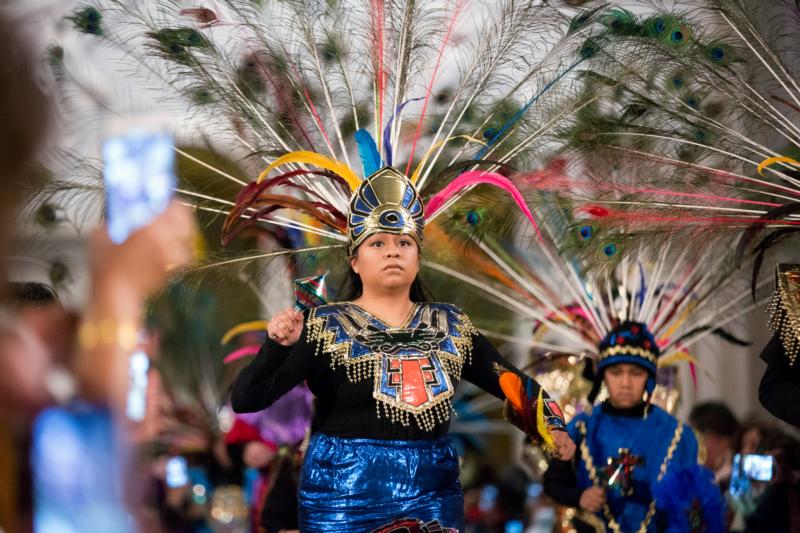
WASHINGTON, D.C.—Practicing patience can be a great virtue, said Auxiliary Bishop Joseph N. Perry of Chicago in his homily at the Aug. 7 closing Mass of the African National Eucharistic Congress.
“What greater school for patience is there than family life?” asked Bishop Perry, who is episcopal liaison to the African Conference of Catholic Clergy and Religious in the United States, one of the eucharistic congress’ sponsors. “Jesus calls us to embrace the gift.”
Bishop Perry described situations where patience can be a virtue in his homily at the Mass, celebrated in the crypt church of the Basilica of the National Shrine of the Immaculate Conception in Washington, D.C.
One such situation: “Imagine for a moment you are stuck in traffic as others lag out of work,” Bishop Perry said. All that is visible, he added, is a “line of taillights.”
Next, he said, imagine there’s “someone between you and the exit you call home.” Upon encountering that person, Bishop Perry added, would you give that person a wave to allow them to travel safely to their destination, “or would you give them another kind of hand gesture?” he asked to laughter.
Another case likely to test one’s patience is being greeted at the other end of a phone call by a prerecorded voice saying, “Your call is very important to us. … Your call will be taken in the order in which it was received.”
Patience, the bishop noted, also can be diverted into irritation, anger and resentment, as he cited the situation of a man intentionally arriving early to wait outside a relative’s house to avoid her likely reproach for being late — and then being forced to wait an hour before she traipses out of the house entirely oblivious to his having waited.
The Gospel of Luke from the 19th Sunday of Ordinary Time proclaimed at the Mass included the parable of the servants waiting for their master to return home from the wedding feast. Bishop Perry said the servants did not know when the master would return, but they were happily expectant.
“Don’t miss the detail how Jesus described his heavenly Father” as the master in the parable, he said.
Bishop Perry also lauded the family structure in his homily. “The church looks to you, families, to be models of the larger family of God,” he said. “Thank you, families, for your faithful witness of marital love and family life.”
“I’m happy to see husbands and wives standing side by side to receive the Eucharist together,” Bishop Perry added. As food nourishes the body, “the holy Eucharist revives the soul,” he said.
The crypt church was filled to standing-room-only capacity. The vast majority in the congregation were Africans, although there was a smattering of curious or befuddled non-blacks who either stuck around for the two-hour-plus Mass or made their way to the shrine’s main church upstairs.
The music reflected the African continent’s culture as well. The opening processional, “We Are Marching in the Light of God,” was sung in other languages in addition to English. And the third Communion song, sung by a combined choir whose members were in ethnic dress and headdress, crescendoed in volume and intensity as it continued, eliciting shrieking and ululation from some in the assembly, which rose to give an ovation at its conclusion.
The Third African National Eucharistic Congress, held on the campus of The Catholic University of America, was sponsored by several partner organizations, including the Secretariat of Cultural Diversity in the Church and several other offices of the U.S. Conference of Catholic Bishops; the national shrine and Catholic University; the National Association of African Catholics in the United States; Trinity Washington University; the Knights of Columbus and Knights of St. John; the Catholic Health Association of the United States; and the St. John Paul II Shrine.
The African Conference of Catholic Clergy and Religious in the United States held its own meeting in advance of the eucharistic congress.
By Mark Pattison / Catholic News Service
CNS photo/Leslie E. Kossoff: A woman prays during the opening Mass of the Third African National Eucharistic Congress at The Catholic University of America in Washington, D.C., on Aug. 5. The closing Mass of the congress was celebrated Aug. 7.



